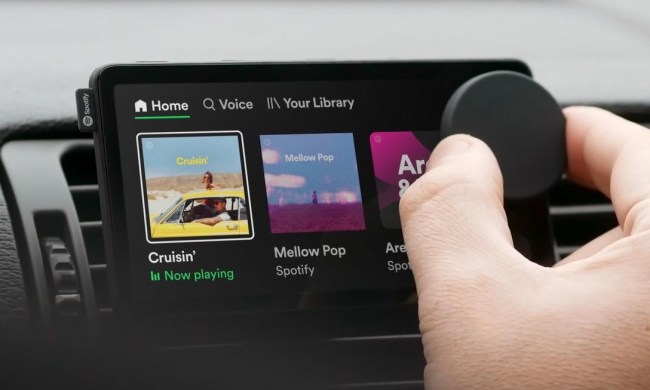For just over a year now, Spotify has been placing a huge emphasis on podcasting. It has bought podcasting companies, created new ways for its users to discover podcasts, and even been experimenting with ways to blend podcasts with music tracks inside playlists, its most popular feature. But on Tuesday, Spotify signaled the start of an entirely new podcast strategy with its blockbuster deal to become the exclusive source of The Joe Rogan Experience: It’s going to kill podcasts.
Wait, what? How can Spotify “kill podcasts?” You’re right, of course. Podcasts can’t be killed by anyone except their creators, which is exactly why the Joe Rogan acquisition is an ominous sign of what’s to come. By making Rogan’s show exclusive to Spotify — something that will officially take place later this year — it effectively ceases to be a podcast at all. Even Rogan’s YouTube presence will be scaled back dramatically.

Reaction to the news immediately provoked comparisons to SiriusXM’s acquisition of Howard Stern’s morning show from terrestrial radio, and it’s an appropriate analogy in more ways than one. The financial play is obvious. Spotify won’t disclose the terms of its deal with Rogan, who is the creator, host, and sole owner of The Joe Rogan Experience, but you can bet it’s a pretty sweet one.
But it’s actually the exclusive nature of the arrangement that should send shock waves through the podcast landscape. Rogan’s show will morph from a 100% publicly available podcast that anyone could subscribe to and download to their devices using virtually any podcasting app into a radio show, pure and simple — a radio show you’ll only be able to listen to if you have the Spotify app. And if you’re looking for an ad-free experience, you’ll likely have to sign up for Spotify Premium as well.
While it’s true that Spotify has said it will not require listeners to become premium subscribers to hear Rogan’s unique take on the world, there’s no reason why that couldn’t become a requirement in the future. If Spotify’s podcast fortunes don’t reverse their recent pandemic-induced slide, it may have little choice but to charge for Rogan’s show.
Why Joe Rogan is a coup for Spotify
Perhaps now is not the time to be wringing our hands over Rogans move to an exclusive platform. After all, isn’t this simply Rogan’s way of taking a much-deserved payday after putting in the hard work required to build a massive and highly desirably audience? The numbers are breathtaking. His podcast is downloaded over 190 million times a month (according to Rogan). His YouTube channel has over 8 million subscribers. In 2019, Rogan was found to be the best-known of all podcasters, beating even Serial, the podcast that has arguably done more to elevate the awareness of the medium than any other.
Slate once called the show an essential platform for freethinkers, and despite Rogan’s tendency to play host to far-right voices like Chuck Johnson, Milo Yiannopoulos, and Alex Jones, he also threw his support behind Bernie Sanders’ presidential bid in January 2020, before Sanders ultimately withdrew.
All of this illustrates why the exclusivity deal is such a feather in Spotify’s cap. No other music-streaming service (except SiriusXM) can offer its audience anything like The Joe Rogan Experience. It also illustrates that the world of podcasting just became the favored hunting ground of large commercial entities looking for an edge as competition among them intensifies.
Could the Joe Rogan/Spotify deal be a one-off? A rare, once-in-a-lifetime event in the media world? Possibly. Rogan’s show has already been called a unicorn for its record-breaking podcast stats. But make no mistake: Content is king, now more than ever. You can see it as Apple TV+ fights to compete with Netflix and Amazon Prime Video. Now, Spotify has shown that in a world where every music-streaming service has the exact same catalog of songs and artists, placing a once freely accessible podcast exclusively on its app is a potentially lucrative growth strategy.
It certainly worked for SiriusXM, which has grown its subscriber base 2,500% since 2003, the year before it acquired Howard Stern. Is your favorite podcast next on the auction block?


